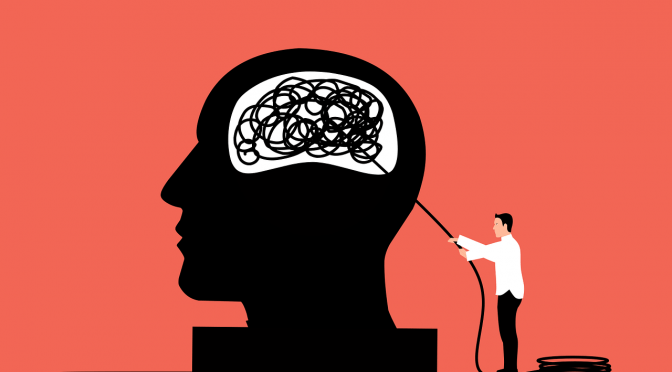Enhance Your Wellbeing with Elementa Psychologists Kew’s Tailored Solutions
Wiki Article
Professional Psycho Therapists Vs Psychiatrists: Key Distinctions You Need To Know
The difference between clinical psychologists and psychoanalysts is important for people seeking mental wellness care, as each professional offers one-of-a-kind competence shaped by their educational backgrounds and treatment techniques. While clinical psycho therapists concentrate mostly on psychiatric therapy to resolve emotional and emotional problems, psychiatrists, as medical doctors, bring a medicinal perspective to therapy, commonly linking medication with therapeutic techniques. This distinction elevates vital concerns concerning which expert might be finest suited for numerous psychological health requirements. As we check out these essential distinctions better, the implications for treatment options come to be progressively substantial.Educational Background
Numerous individuals seeking psychological health and wellness solutions may question the differences in educational backgrounds in between medical psychologists and psychoanalysts. The distinctions are vital and substantial for understanding the duties each expert plays in mental healthcare.Medical psycho therapists generally hold a doctoral level in psychology (Ph.D. or Psy.D.), which requires comprehensive training in psychological theories, study approaches, and professional technique. Their education and learning consists of a minimum of 5 years of graduate research, including both coursework and monitored clinical experience. In addition, clinical psychologists are required to finish a pre-doctoral internship and obtain licensure, which entails passing a national examination.
On the other hand, psychiatrists are medical physicians (M.D. or D.O.) who finish a four-year clinical degree followed by a residency in psychiatry, which lasts an additional four years. Their medical training equips them to recognize the biological aspects of mental conditions, permitting them to suggest medicines and supply a clinical viewpoint on treatment.
These differing academic paths emphasize the one-of-a-kind proficiency each specialist brings to the area, shaping their techniques to person, diagnosis, and therapy treatment. Recognizing these differences is important for individuals browsing the psychological health and wellness system.
Treatment Techniques
Diverse therapy techniques define the techniques of professional psychologists and psychoanalysts, mirroring their unique training and areas of proficiency. Their emphasis is on psychological and psychological analysis, treatment, and the development of coping methods to deal with various mental health and wellness conditions.

Both professionals may team up in therapy strategies, ensuring detailed care that resolves the intricacies of mental health and wellness. Eventually, the choice of treatment approach may depend upon the nature of the disorder, the preferences of the individual, and the certain competence of the medical professional entailed.
Role in Mental Health Care

In contrast, psychoanalysts are clinical doctors who focus on the medical diagnosis and therapy of psychological health and wellness problems, often employing a biomedical technique. They can prescribe drugs to manage psychological symptoms and are educated to consider the physiological facets of psychological health, such as neurobiology and pharmacology. This medical viewpoint enables psychoanalysts to resolve complex instances that might need a combination of drug monitoring and psychotherapy.
With each other, scientific psychologists and psychiatrists develop a thorough psychological healthcare structure, addressing both clinical and psychological demands. Collaboration between these experts makes sure that individuals get all natural treatment, eventually boosting treatment outcomes and enhancing the lifestyle for people experiencing mental health and wellness obstacles.
Sorts Of Disorders Treated
While both scientific psychologists and psychiatrists address a wide variety of psychological wellness problems, their strategies and areas of knowledge frequently dictate the certain problems they deal with. Scientific psycho therapists mostly concentrate on the assessment and therapy of emotional, behavioral, and cognitive conditions with psychotherapy. They frequently deal with clients experiencing anxiousness disorders, depression, trauma (PTSD), obsessive-compulsive condition (OCD), and numerous character problems. Their therapeutic strategies consist of cognitive-behavioral therapy, dialectical actions treatment, and various other evidence-based methods. elementa psychologists kew.In comparison, psychiatrists are clinical physicians who can suggest drugs and have specialized training in the organic aspects of psychological health. They frequently take care of more complicated psychological conditions that click this might call for pharmacological intervention, such as schizophrenia, bipolar illness, extreme anxiety, and material make use of conditions. Psychoanalysts may incorporate medication management with psychiatric therapy yet typically concentrate on the clinical and biochemical elements of psychological health and wellness concerns.
Recognizing these distinctions can help individuals look for the appropriate care tailored to their specific psychological health requirements, guaranteeing they receive the most reliable treatment for their problems. elementa psychologists kew.
Insurance Coverage and Cost Considerations
Browsing insurance policy and cost factors to consider is a vital aspect for individuals seeking psychological wellness services from medical psycho therapists or psychoanalysts. Both careers might approve numerous insurance policy strategies, yet the level of coverage can vary significantly. Psychiatrists, that commonly suggest drug, may have various invoicing methods compared to scientific psycho therapists, who commonly concentrate on psychotherapy.Insurance coverage reimbursement for psychiatric services could be extra desirable because of the medical nature of their technique. Patients may encounter higher deductibles or co-pays when getting in touch with a psychiatrist. On the other hand, scientific psycho therapists might give services billed under mental wellness advantages, which could cause reduced out-of-pocket prices, relying on the insurance company's policy.
Moreover, individuals need to consider the regularity and period of treatment sessions when examining expenses. While psychoanalysts might offer shorter, medication-focused sees, scientific psychologists commonly engage in longer sessions committed to therapeutic methods.
Ultimately, comprehending the specific regards to one's insurance plan, including network schedule, coverage restrictions, and pre-authorization needs, is crucial. Clients are urged to contact their insurance policy supplier to clarify benefits and explore alternatives for inexpensive mental healthcare.
Final Thought
In recap, the differences in between clinical psychologists and psychiatrists are critical for notified choices pertaining to mental health treatment. Educational background, therapy techniques, and roles in mental health dramatically differ between the two professions. While professional psychologists mainly focus on psychotherapy, psychiatrists integrate drug management into their practice. Recognizing these differences enhances the capacity to select the suitable expert based upon specific requirements, whether they entail therapy, drug, or a combination of both for optimal mental health outcomes.The distinction in between scientific psychologists and psychoanalysts is critical for individuals seeking mental health treatment, as each expert offers unique expertise formed by their academic backgrounds and therapy techniques.The roles of medical psychologists and psychiatrists in go to my blog mental health and wellness care are corresponding, mirroring their distinctive training and knowledge.While both professional psychologists and psychiatrists resolve a broad array of mental wellness disorders, their strategies and locations of knowledge commonly dictate the specific problems they treat.Navigating insurance coverage and cost considerations is a vital facet for individuals seeking psychological elementa psychologists kew wellness services from clinical psychologists or psychoanalysts.In summary, the distinctions in between medical psycho therapists and psychoanalysts are critical for educated decisions pertaining to psychological health treatment.
Report this wiki page